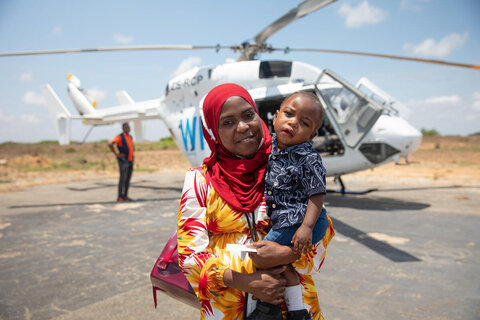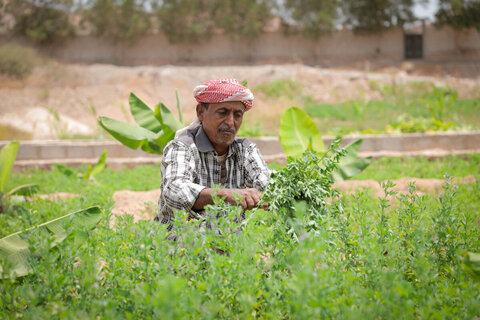Why women and girls in Yemen need WFP’s support more than ever

Hunger is cruel to everyone, but it's not completely blind. Women — especially in times of war — are more at risk from the suffering it creates. Women eat last and they eat least. They are often forced to drop out of school or marry early when there is not enough food.
WFP USA podcast: Listen to Annabel Symington on Yemen
Yemen is no exception, and as the nation's conflict drags into its sixth year, women find themselves in increasingly difficult circumstances. But women are ever resilient, so despite the suffering, they find ways to remain hopeful and strong.

In Yemen, women and girls face challenges similar to those of women in any vulnerable country: pregnancy makes them more susceptible to malnutrition and their role as caregivers can make them selfless to a damaging degree, forgoing meals so that their children can eat.
War in the country burdens them with additional challenges. Fleeing violence, women lose their communities and critical support systems. Too many girls are forced to drop out of schools, which their families can no longer afford.

Hannan's story exemplifies this problem. She dropped out of school a year after the conflict started, aged 14. School fees soon became unaffordable, so she had to stay home to care for her siblings instead. Last year, aged 18, Hannan got married.
Such stories are sadly all too common and WFP is working to make them less so by supporting school feeding programmes. These help keep girls in school. Distributions of free nutritious snacks incentivize parents to send their children to school. WFP is currently expanding to reach 1.2 million children across Yemen with snacks. We have just started a pilot programme to provide kids in school with sandwiches and fresh fruit.

Launched in Aden in February, the pilot employs women to make the sandwiches and sources all ingredients for packed lunches locally — giving markets a much-needed boost. The sandwiches are hugely important in improving the overall nutrition of children as they provide them with half their daily calorie needs. WFP plans to expand the programme to other parts of Yemen, too.

Among women, mothers are particular vulnerable to the hardships of war — and hunger. Mothers sacrifice their share of food to ensure their children have enough. This can leave them at risk of malnutrition and, if they are breastfeeding, they then often can't produce enough milk for their babies.
Zainab

A mother of three, Zainab recently brought her infant daughter to a WFP-supported clinic in Aden. Zainab hadn't had any problem breastfeeding her first two children, but she couldn't produce enough milk for her third. As a result, the baby was acutely malnourished. Zainab was given a supplementary food product which is a wheat soya blend designed to give pregnant and breastfeeding mothers the nutrition they need.
Sometimes in Yemen, even when mothers give up everything, they still can't provide their families with enough — a burden that takes its toll. Nesreen lives with her husband and two children in Aden in a camp for internally displaced people (IDPs). She receives monthly cash assistance from WFP, but recent price increases have left her struggling to buy enough food.

"When the prices increase, we skip meals," she says. "We cannot afford to have lunch and sometimes we do not have dinner."
Having enough to eat is critical for any child, but it's especially important for children aged two and younger. Not having the right nutrients in the first 1,000 days can have a detrimental impact on the rest of their lives.
WFP runs nutrition centres across Yemen, providing around 3 million pregnant and breastfeeding mothers and children with special nutritional support to both treat and prevent malnutrition. WFP's goal is to reach every pregnant woman and mothers of children under two, a huge challenge in a country torn apart by conflict.
Women and children are given a month's supply of nutrition supplements and asked to return the following month for a checkup. That's not always possible for some mothers as transport is expensive, while the conflicts shifting frontlines can make travel impossible.
Perseverance and strength
War weighs heavily upon women in Yemen, but despite the pain, it does not crush them. Among their stories of suffering are also stories of resilience, hope and strength.
Nawal receives WFP cash assistance to buy food. A trained midwife, she ended up in an internally displaced persons (IDP) camp after fleeing violence in her hometown, the port city of Hodeidah. She left everything behind when she fled her home, but not her desire to help. She continues to deliver babies for women displaced by war and refuses to accept any payment.

The women in the camp depend on her. They call her ‘Doctor Nawal', and someone is always outside her tent entrance asking for help. She has helped to deliver countless babies in the IDP camp.
"Because I am a woman, I know how women suffer during childbirth," says Nawal. "That's where my passion came from to help women when they give birth."
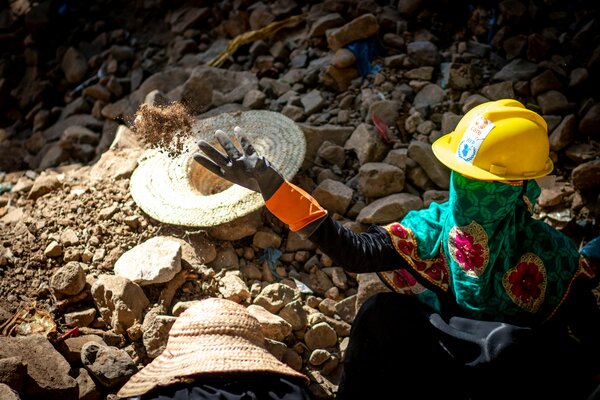
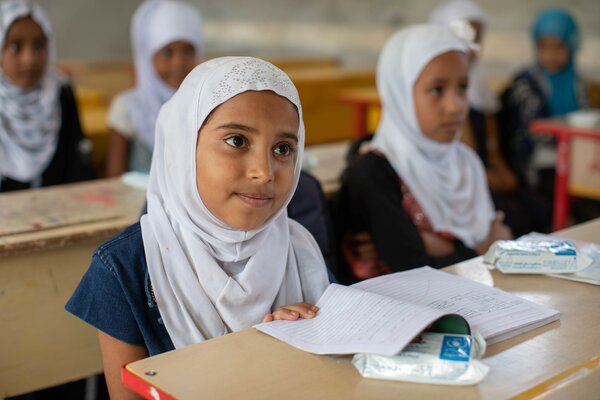
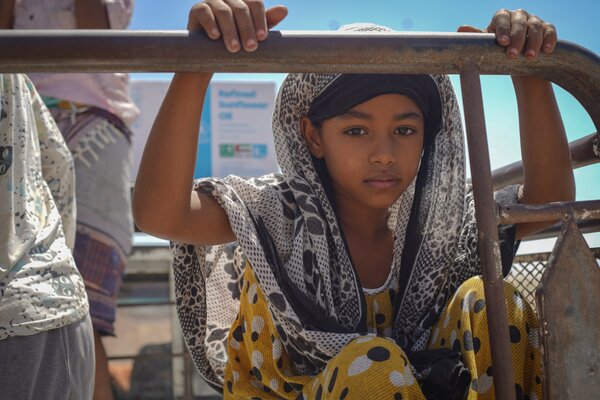
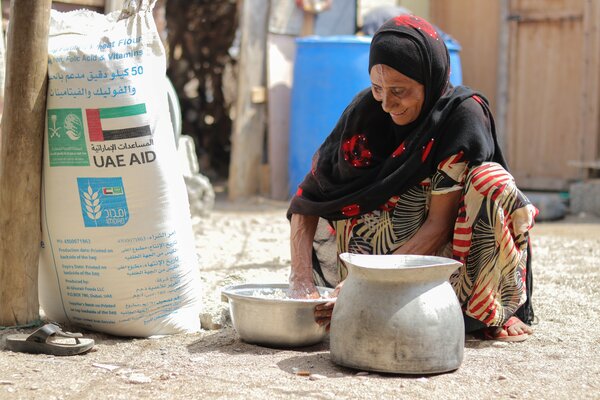
As Yemen moves into its sixth year of war, the crisis has shifted out of the global spotlight. But while news cycles may have moved on, there are still many women there who need our support.
Assistance in Yemen is making a difference. WFP has saved millions from the brink of famine, but we currently have a funding shortfall of over $800 million — funding that's critical to reaching 12 million severely hungry people each month. Without WFP's continued support, the situation in Yemen will deteriorate quickly.
Yemen is WFP's largest operation in the world, supporting 12.5 million people — over a third of the population — with monthly food assistance. WFP in Yemen also provides nutrition support to women and children, runs a school feeding programme in over 1,500 school and supports communities to rebuild key assets, like roads, schools and irrigation systems, to put them on a path to self-sufficiency.
WFP's response to the crisis in Yemen has so far averted famine. This level of response would not have been possible without the support of our donors: USAid, KSrelief, UAEAid, EU, Germany, Germany BMZ, Kuwait, UK, Japan, UN CERF, Norway, Republic of Korea, Canada, Switzerland, Sweden, Denmark, Australia, Finland, Italy, Qatar, France, Austria, Luxemburg, Russia, Czech Republic, Iceland, Estonia, Slovenia, Bulgaria, Croatia.

